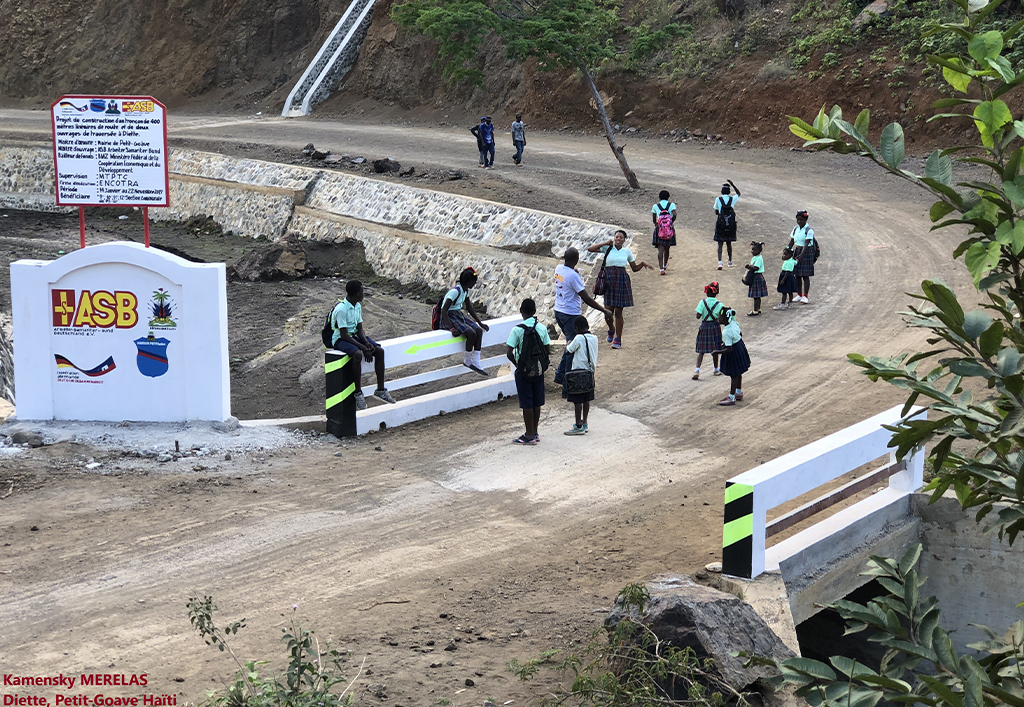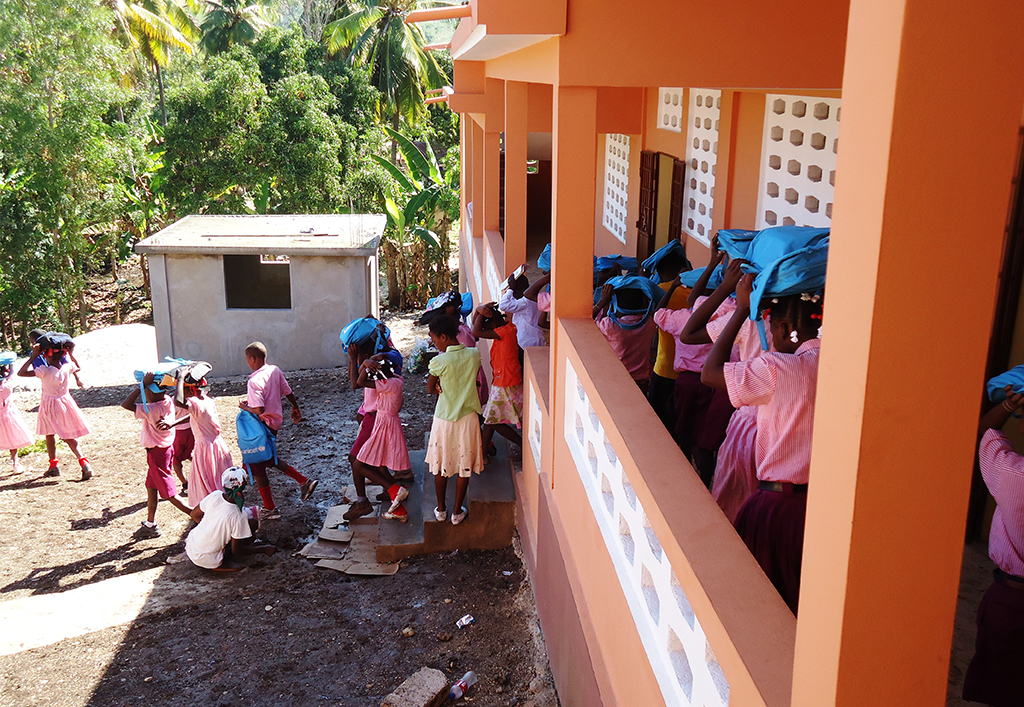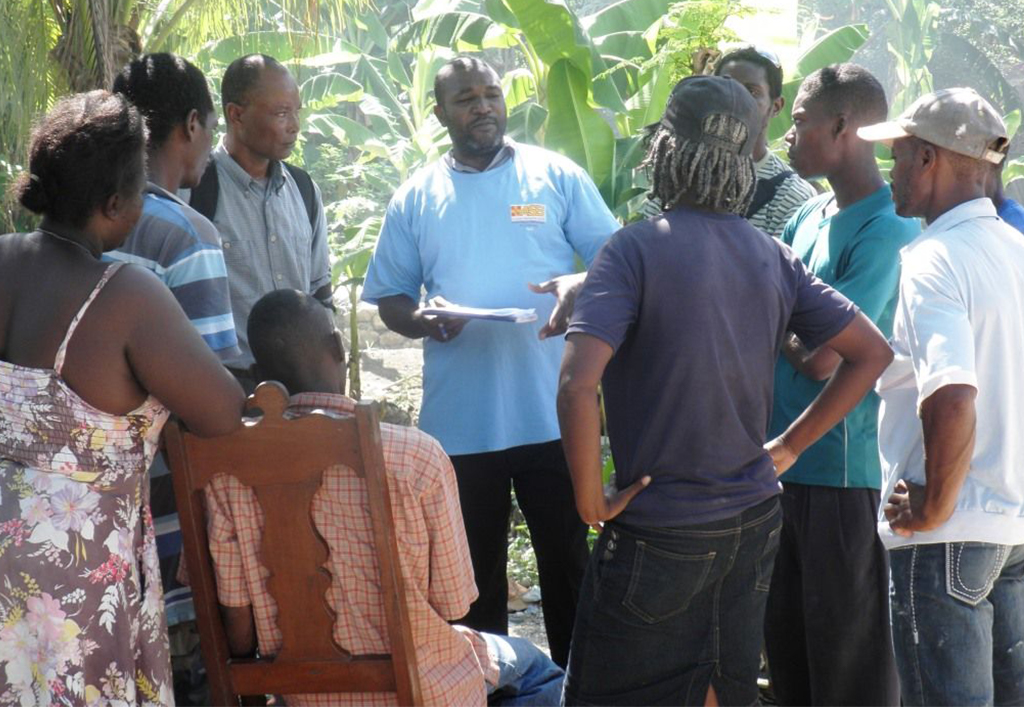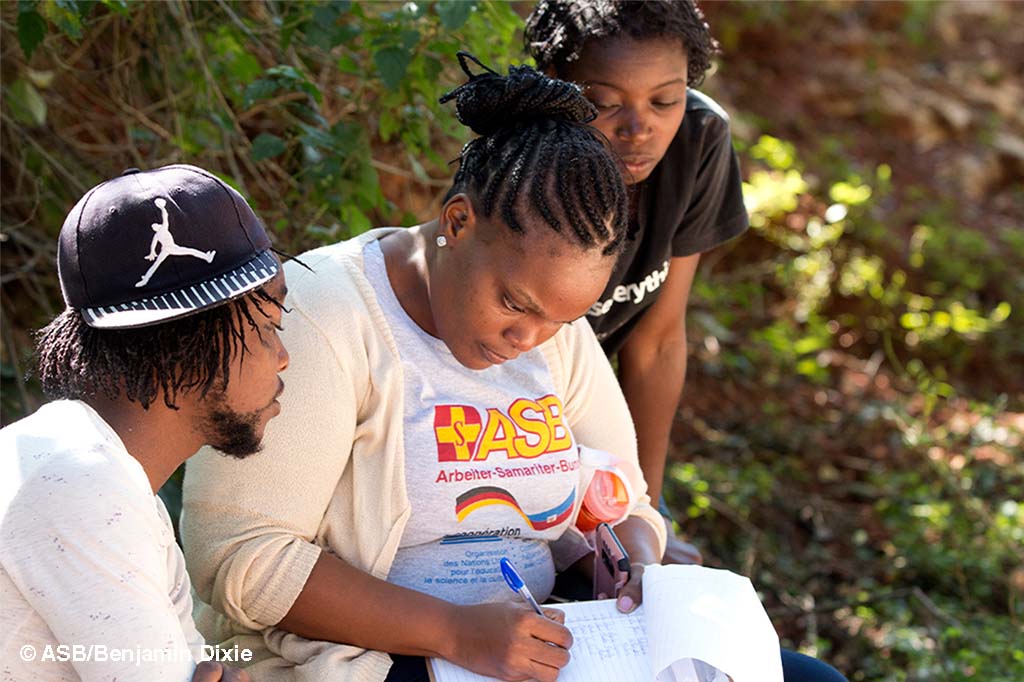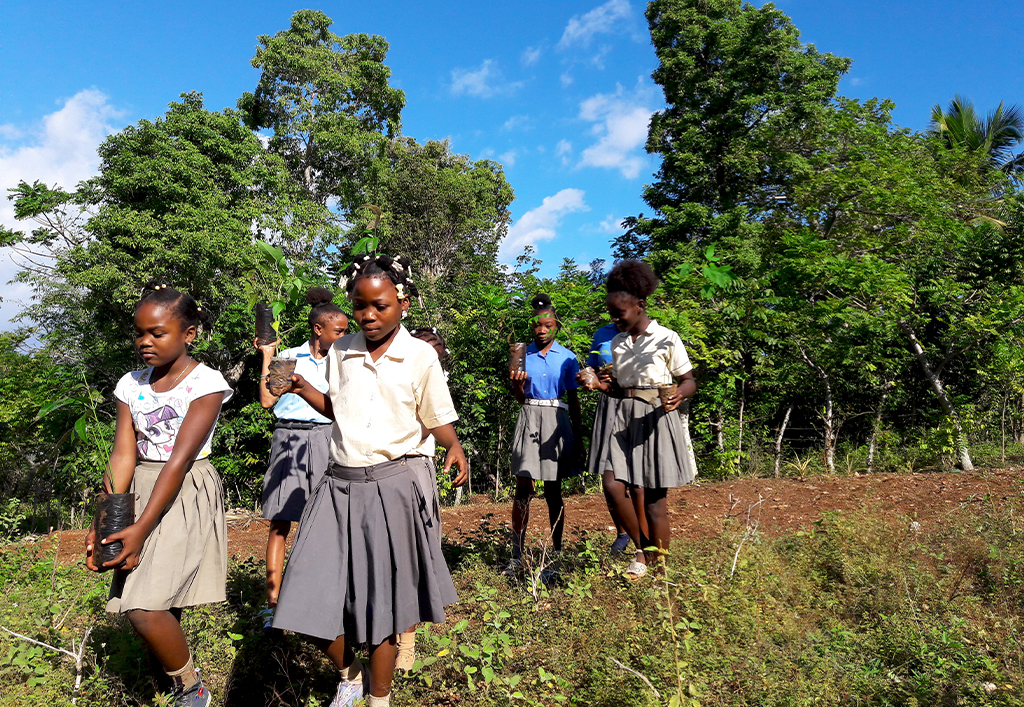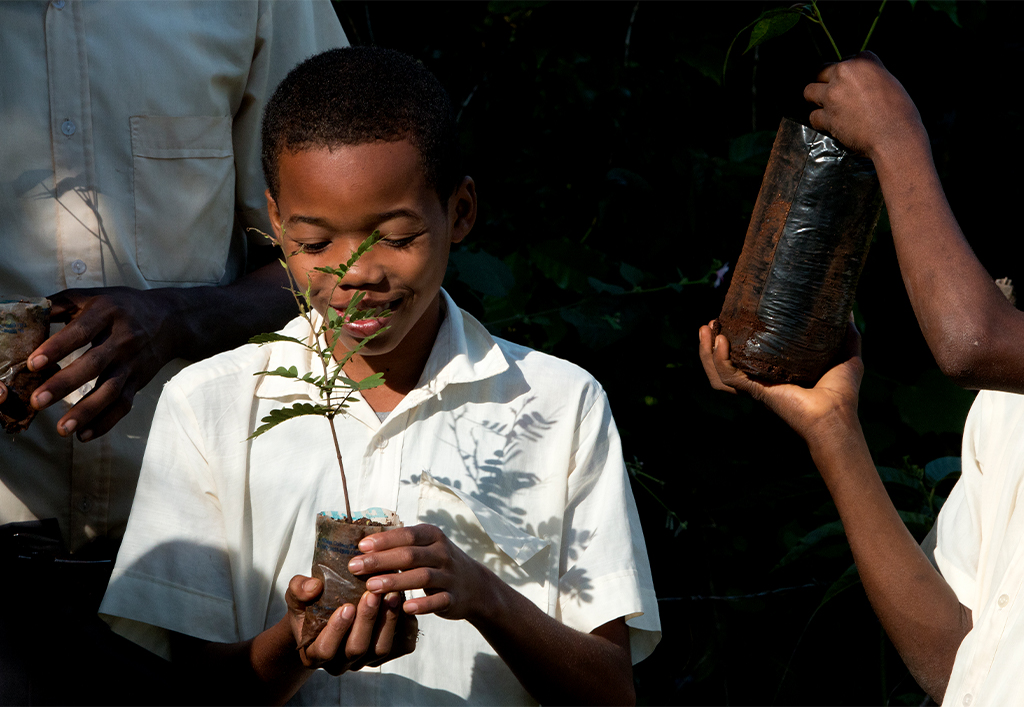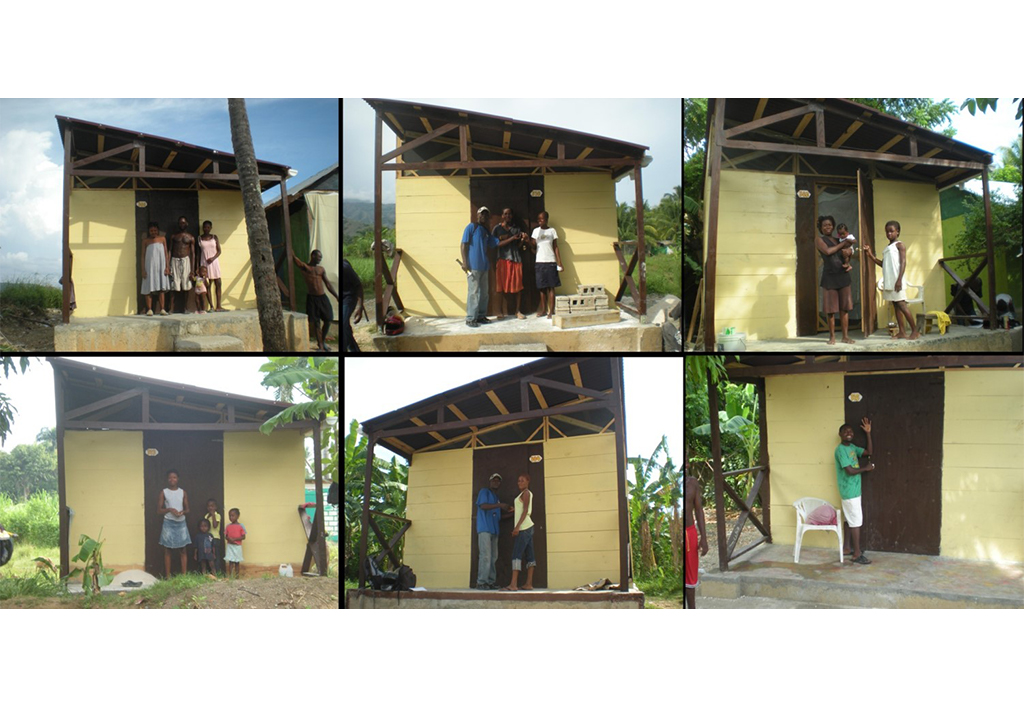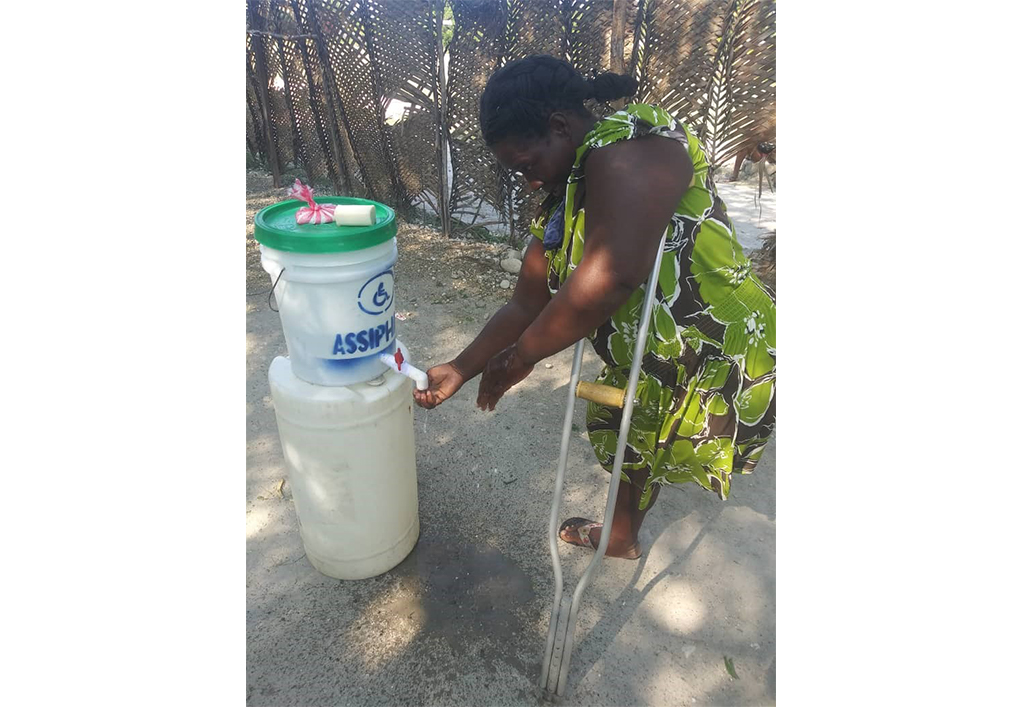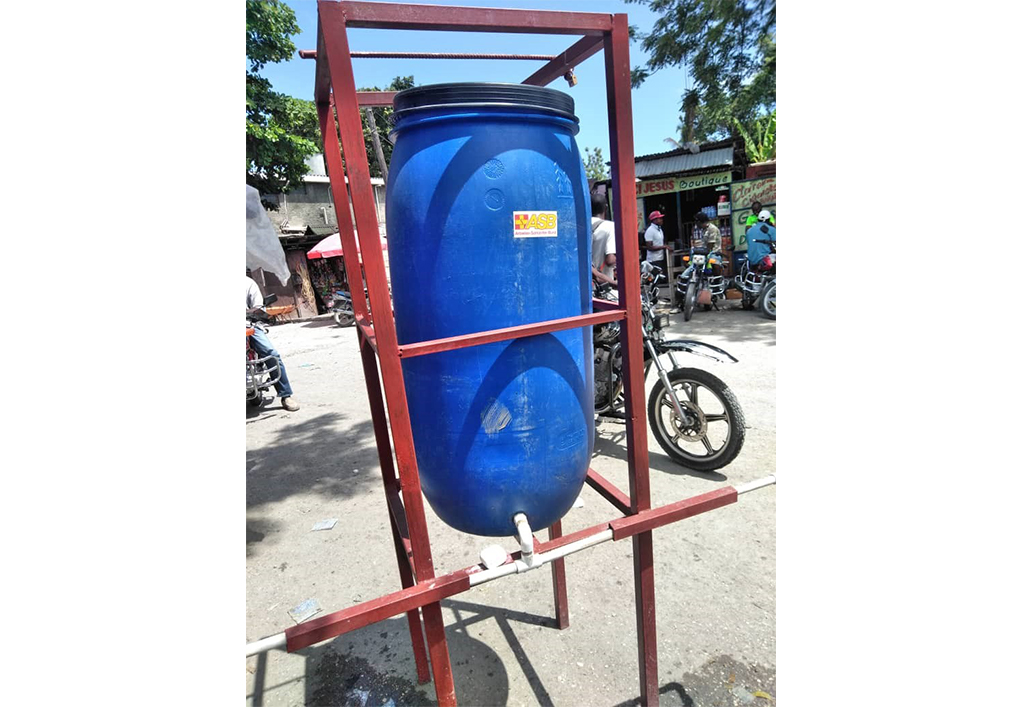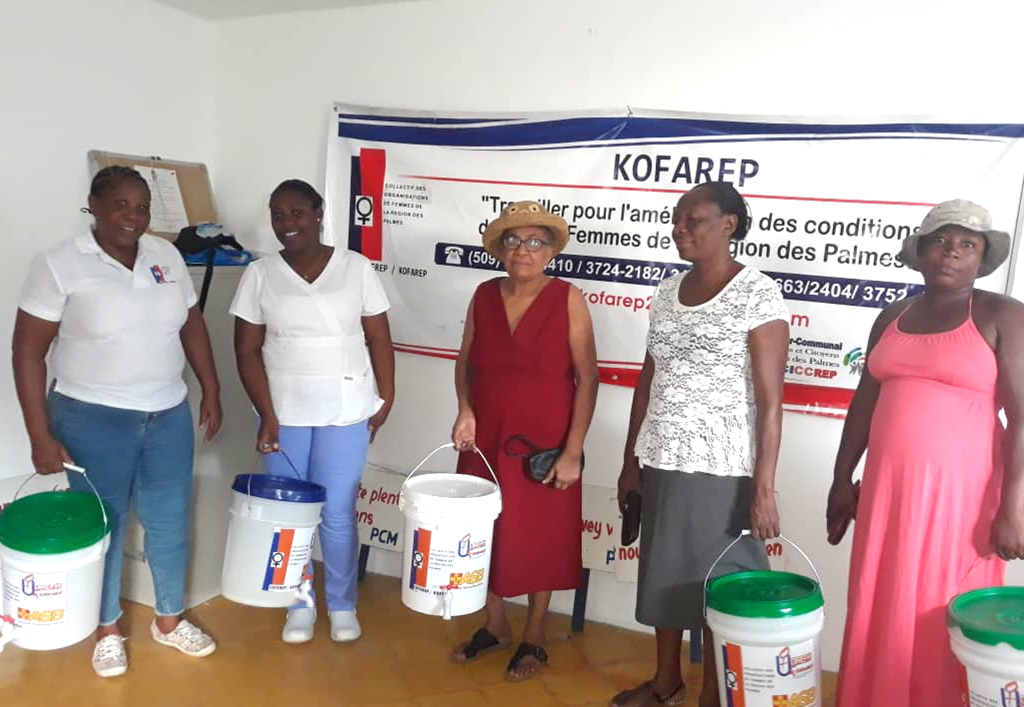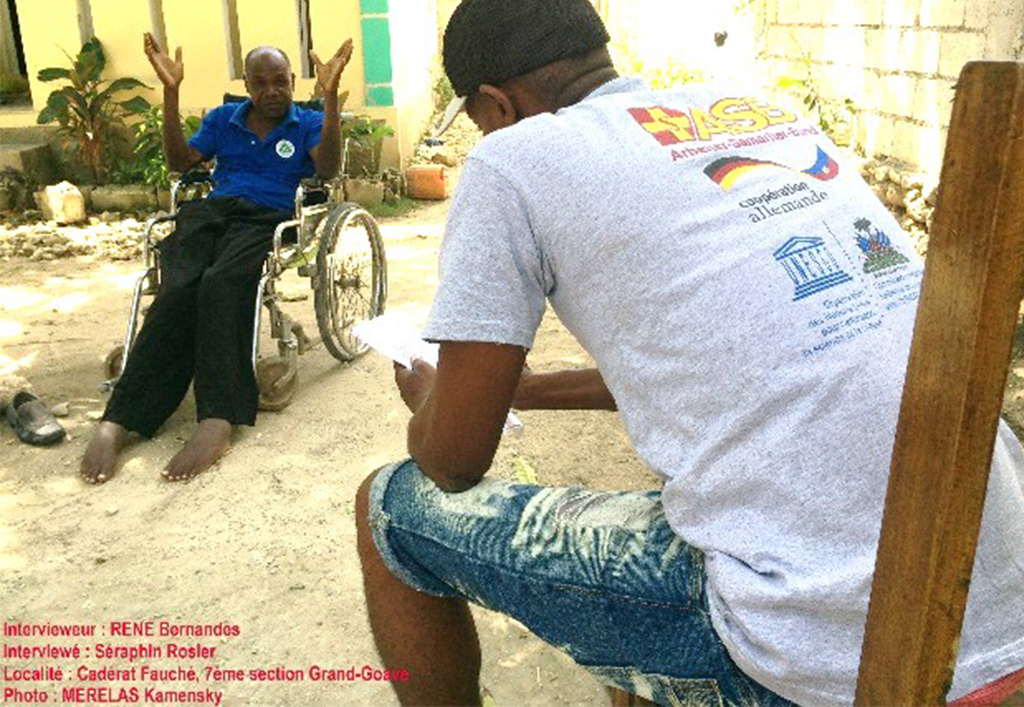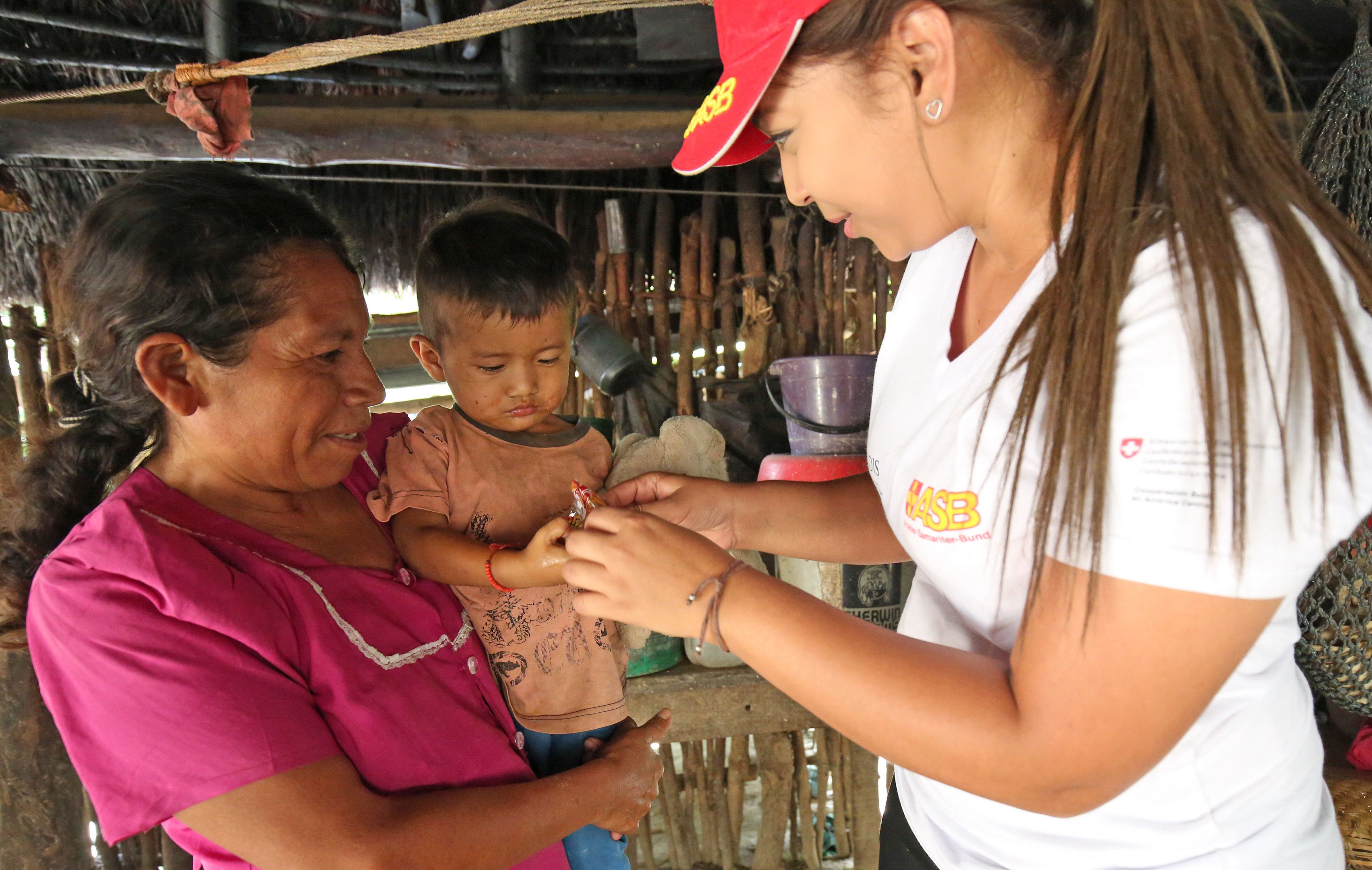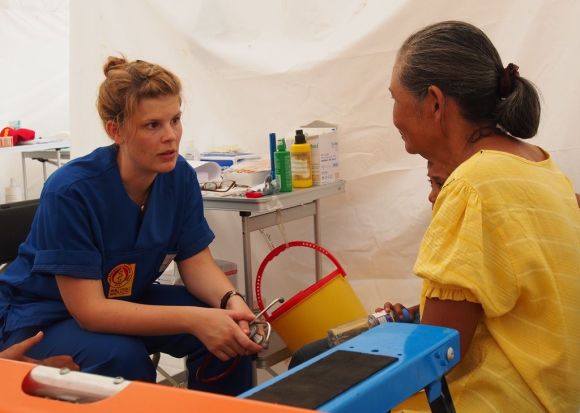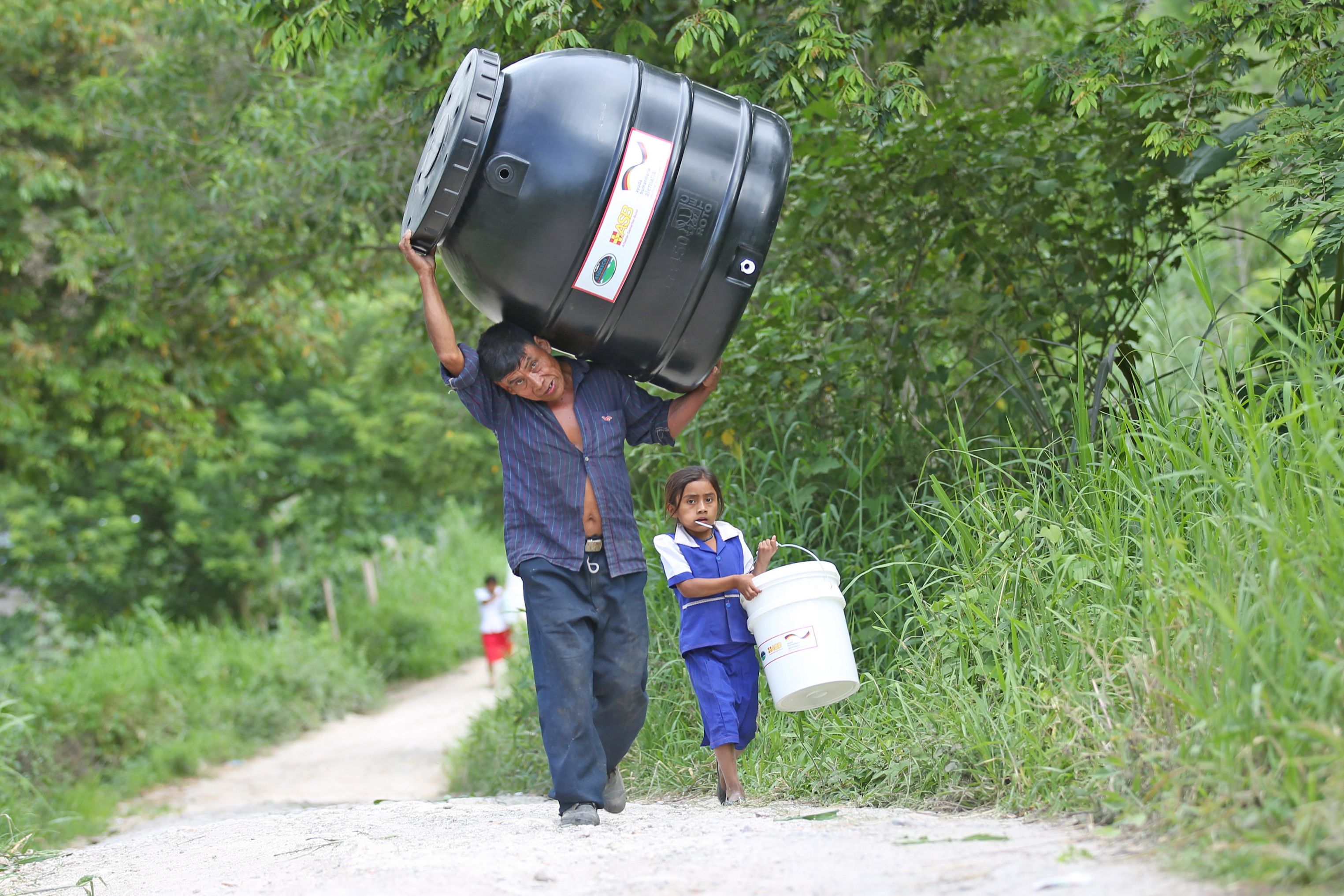
2010: ASB helps after major earthquake in Haiti
On 12 January 2010 at 4:53pm local time, the most severe earthquake in the history of North and South America devastated Haiti. It reached 7.0 on the Richter scale and was located only 25 kilometres south west of the capital Port-au-Prince, destroying large parts of the greater Port-au-Prince area. With at least 220,000 people dead, 300,000 injured and 1.85 million homeless, as well as massive destruction of businesses and public infrastructure, the earthquake had a devastating impact on the country.
Shortly after the earthquake, the ASB was prepared and ready to go and sent a team to the disaster area to prepare relief efforts. This team was followed by a medical team that spent eight days providing emergency medical aid at a field hospital near the border town of Fond Parisien. Every day, up to 200 severely injured earthquake victims were treated in an emergency tent camp. The ASB delivered urgently needed medicines and bandages for 10,000 people. The field hospital was additionally supplied with orthopaedic and surgical resources. The ASB also helped in the capital Port-au-Prince by distributing 8.5 tons of hygiene items for families with babies. In the Goâve region, Samaritans provided food to hospitals.
In the region’s largest city, Petit Goâve, the ASB built 300 emergency shelters in one year. In addition, the ASB established both a country office and a workshop. In the workshop, local workers made parts needed for the reconstruction, thereby also generating a source of income. The supply of clean water was also improved through a joint project with the aid organisation ‘Arche Nova’.
Between 2013 and 2020, the ASB’s work in Haiti focused primarily on reconstruction, disaster risk reduction and food security. The aim was to strengthen the rural population after the earthquake by rebuilding schools and roads. The schools were constructed in such a way that they could also serve as emergency shelters. Roads and bridges also had to be built in a way that they remain intact in the event of a disaster to allow for people to be evacuated. Another focus of the aid projects was on food security and disaster risk reduction. This included training courses on how to build disaster-proof buildings (‘earthquake engineering’) and the correct behaviour in the event of an emergency. The courses in ‘earthquake engineering’ were held in cooperation with the Ministry of Construction. In schools, students were taught about potential risks and prepared for disasters with emergency drills and first aid courses. Using campaigns and educational events, the ASB also aimed to create a mindset for disaster risk reduction.
The ‘Diette’ project, through which the ‘Route des Palmes’ rural road was restored, deserves special mention when it comes to the topic of strengthening infrastructure and disaster risk reduction. ‘Diette’ is the largest project the ASB has undertaken since the beginning of its efforts to rebuild rural roads in Haiti. The road ‘Les Palmes’ connects eleven districts with more than 800,000 people. Before the start of the project, heavy rainfall tended to result in rural residents being cut off from the outside world for several days due to flooding. The repairs have significantly reduced the risk of flooding during the rainy season. In addition, the rebuilding efforts allowed for easier transportation and trade, thereby having a positive effect on the local economy.
Since 2020, the ASB no longer carries out projects in Haiti itself; instead, project implementation has now become the task of six of its local partner organisations. They focus their relief efforts on improving food security for children, access to clean water, hygiene measures in schools and communities, and sustainable livelihoods for the local population. The last point on that list will be achieved primarily through a focus on shifting from traditional to climate change-adapted agriculture, as well as the creation of more environmentally friendly ways to generate an income.

